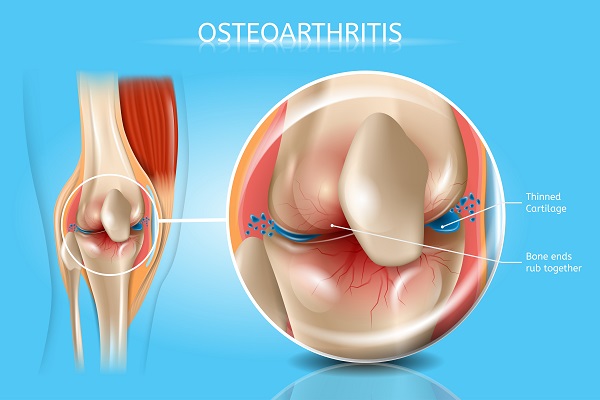Treating Knee Osteoarthritis with Hyaluronic Acid Injection Therapy

Patients experiencing knee osteoarthritis can get a hyaluronic acid injection to relieve the pain and stiffness. Read on to learn more about this treatment option. These injections are given to people with osteoarthritis to help lubricate their joints for smoother function. Depending on your symptoms and previous therapies you have tried, your doctor can tell you whether this treatment will help.
An overview of hyaluronic acid injections for osteoarthritis treatment
Hyaluronic acid, or hyaluronan, is a gel-like substance in the synovial fluid that keeps the joints lubricated. Since arthritis sufferers' joints lose hyaluronic acid as they deteriorate, the idea is that replenishing it via hyaluronic acid injections (a procedure known as viscosupplementation) would reduce the pain patients feel when using their joints. The Federal Drug Administration (FDA) has authorized the injections for the treatment of knee osteoarthritis.
Why get hyaluronic acid injections?
Other conservative therapies, including weight reduction, exercise, NSAID medicines, and steroid injections, are usually the first line of treatment for patients with osteoarthritis. Hyaluronic injections may be an alternative if those do not work.
Some individuals may have additional medical issues for which first-line therapies are not recommended. Hyaluronic acid injections may be combined with steroid injections by certain physicians. Although hyaluronic acid may be taken as a tablet, most people prefer injections. Injections have the advantages of targeted joint relief without the systemic adverse effects of pills and the ease of not having to take tablets orally.
Injections of hyaluronic acid are often used as a final resort before knee replacement surgery. It may postpone or prevent surgery for some individuals, but hyaluronic acid injections will usually not prevent ultimate surgery in severely damaged knees.
The process for getting hyaluronic acid injections
The procedure for getting hyaluronic acid injections is very straightforward. They are injected directly into the afflicted knee joint, particularly inside the synovial fluid covering the joint. As with any injection, some individuals may find it more unpleasant than others, but there should be little discomfort because a sharp needle is used. The joint may be numbed beforehand with a local anesthetic.
How long it takes to start feeling better varies a lot by the patient. Patients can get the injections every six months, depending on the doctor's assessment. Most patients experience relief lasting between four to six months, and they receive the injections every six months. However, it is important to note that they do not function indefinitely. In addition, unlike steroid injections, which act considerably quicker, the shots may take many weeks to take effect.
The side effects of hyaluronic acid injections
Although the injections are considered generally safe, some patients may experience certain side effects, including discomfort, swelling, heat, inflammation, and fluid accumulation around the knee. Resting and icing can help mitigate these common adverse effects.
Ready to get some knee pain relief?
If you want to try hyaluronic acid injections for your osteoarthritis, speak to a doctor and see if they would recommend the treatment for you.
Get more information here: https://sjrm-tn.com or call Spine & Joint Regenerative Medicine at (423) 424-1529
Check out what others are saying about our services on Yelp: Osteoarthritis in Ooltewah, TN.
Related Posts
Degenerative joint disease is a common issue among seniors, active adults, and some younger individuals with prior injuries. It gradually deteriorates the cartilage that cushions joints, leading to pain, stiffness, and reduced mobility. Fortunately, treatment aims to keep patients active and independent. Understanding the development, diagnosis, and treatment options for this condition can help make…
Chronic pain treatment involves a comprehensive process that begins with an initial evaluation and continues through long-term recovery. Many individuals pursue chronic pain treatment to improve function and manage symptoms, allowing them to achieve a greater quality of life. A thoughtful and structured approach from the start supports steady progress over time.The first appointment sets…
Regenerative medicine represents a shift in how chiropractors approach injury care and pain management. Rather than focusing only on symptom relief, these innovative therapies rebuild tissue strength and joint mobility with the help of the body’s natural healing processes. When combined with chiropractic adjustments, regenerative medicine provides a clear path to recovery and performance.At its…
You have probably heard about sports medicine, but how much do you know about this branch of medical care? If you are an avid athlete, chances are good that you will one day need help from a professional in this industry. You do not need to be a high-level athlete to visit a therapist or…
